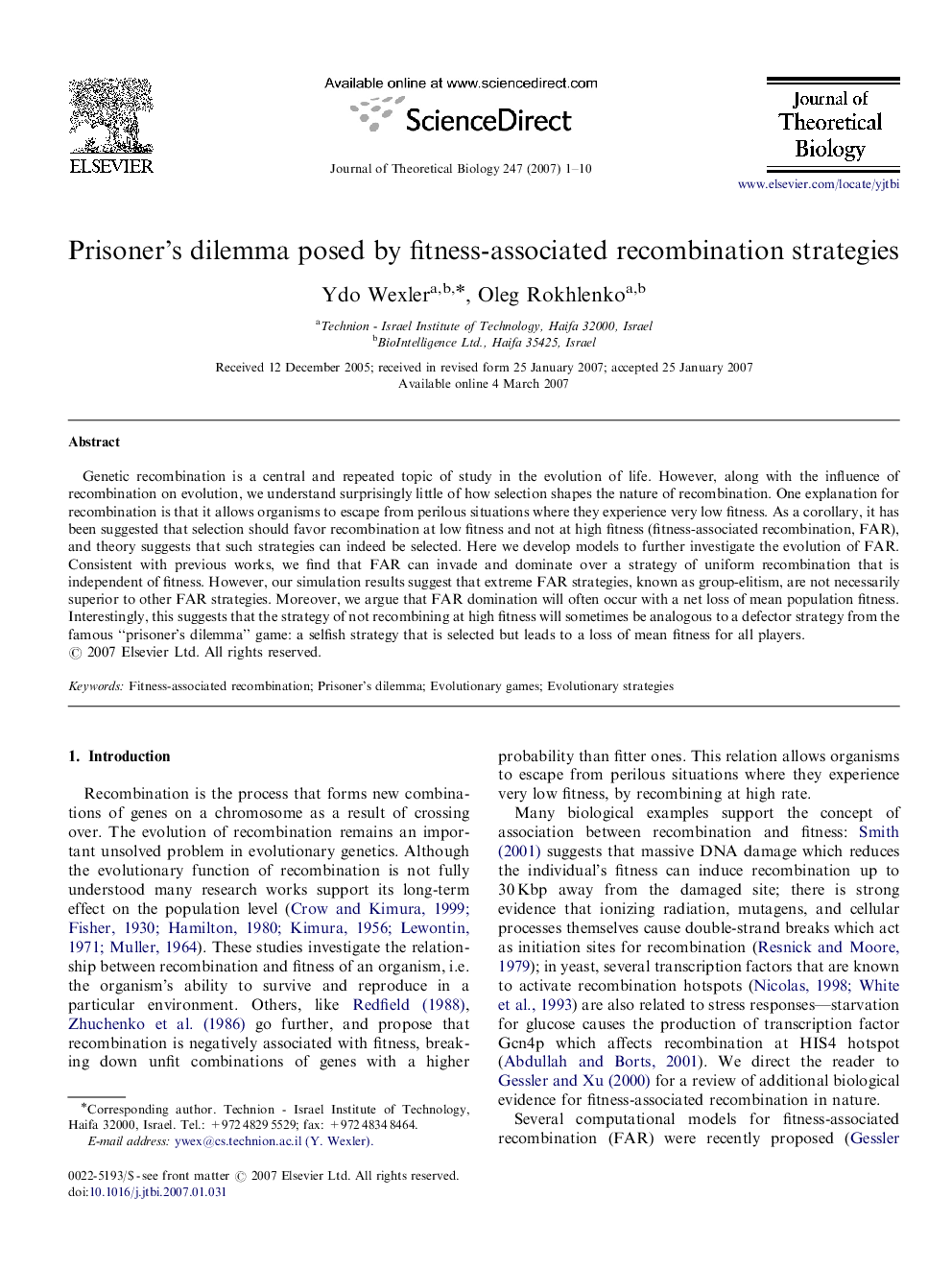| Article ID | Journal | Published Year | Pages | File Type |
|---|---|---|---|---|
| 4499222 | Journal of Theoretical Biology | 2007 | 10 Pages |
Genetic recombination is a central and repeated topic of study in the evolution of life. However, along with the influence of recombination on evolution, we understand surprisingly little of how selection shapes the nature of recombination. One explanation for recombination is that it allows organisms to escape from perilous situations where they experience very low fitness. As a corollary, it has been suggested that selection should favor recombination at low fitness and not at high fitness (fitness-associated recombination, FAR), and theory suggests that such strategies can indeed be selected. Here we develop models to further investigate the evolution of FAR. Consistent with previous works, we find that FAR can invade and dominate over a strategy of uniform recombination that is independent of fitness. However, our simulation results suggest that extreme FAR strategies, known as group-elitism, are not necessarily superior to other FAR strategies. Moreover, we argue that FAR domination will often occur with a net loss of mean population fitness. Interestingly, this suggests that the strategy of not recombining at high fitness will sometimes be analogous to a defector strategy from the famous “prisoner's dilemma” game: a selfish strategy that is selected but leads to a loss of mean fitness for all players.
